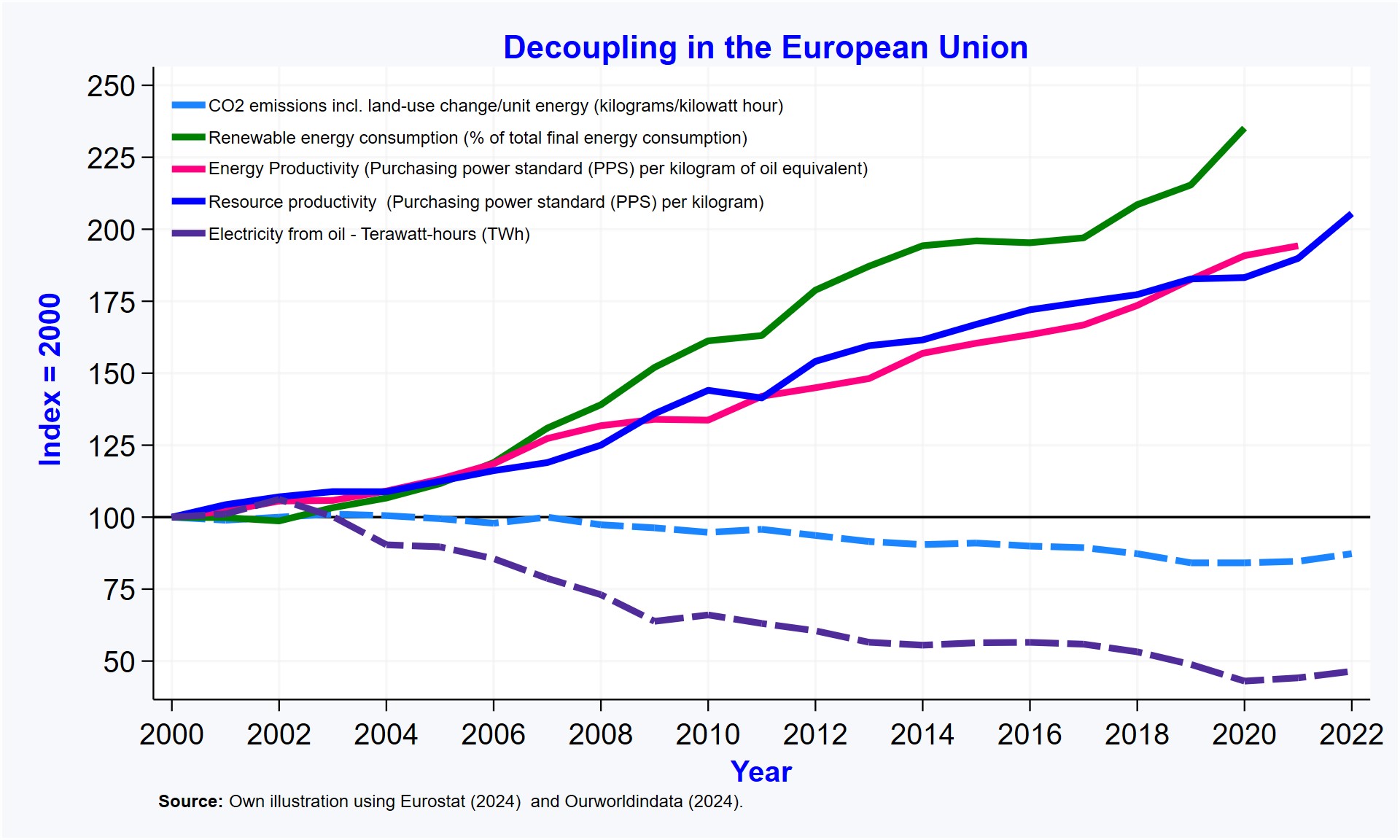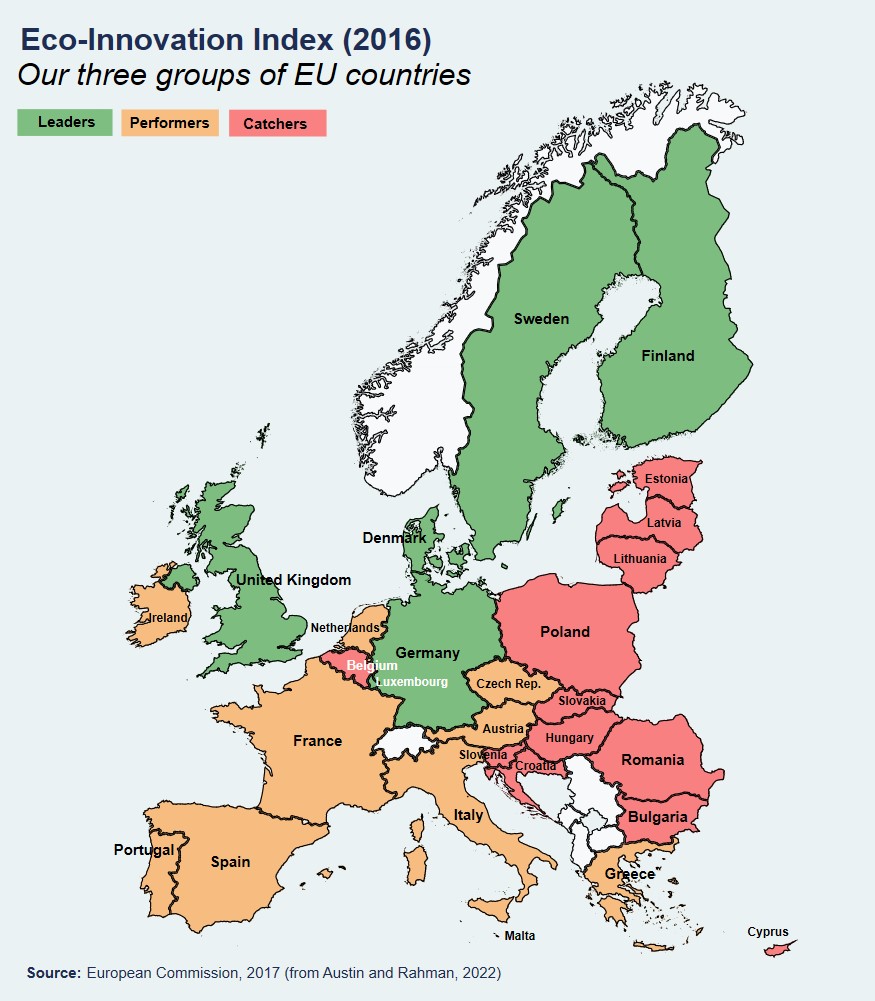Eco-Innovations, Energy Citizenship and Global Climate Change
The project explores how environmental innovation (EI) and energy citizenship (ENCI) can support the EU’s transition to a sustainable, low-carbon economy. It focuses on promoting sustainable production and consumption, driven by citizen action and innovative solutions. The project also highlights the need for financial tools to help SMEs adopt green practices across different EU countries.
A substantial “emissions gap” exists to meet the Paris Climate Agreement of keeping global temperature increase below 1.5°C [1]. In consideration of this looming existential threat, the European Union (EU) has responded to the urgent calls for resource and energy decoupling to transition to green growth. Figure 1 below shows that from 2000 to 2022, the EU saw diverging trends between its Domestic Material Consumption (DMC) and Gross Domestic Product (GDP) implying an increase in resource productivity and therefore, decoupling. Similarly, attributed to a gradual decrease in the carbon emission from the primary energy consumption, an increase in the share of renewable energy sources, and decrease in usage of oil to produce energy has led to energy productivity. However, the EU requires radical and fast changes to maintain its energy productivity because at its current pace, it is not projected to meet its reduction targets [2], [3].
In this project, we explore the concepts environmental innovation (shortly: eco-innovation, EI) and Energy citizenship (shortly: ENCI) to scientifically assist the EU meet its objectives. The concept of sustainable consumption and production enabled by EI and ENCI concepts is at the forefront of the EU’s green efforts [4]. EI is the introduction of any new or significantly improved product (good or service), process, organizational change, or marketing solution that reduces the use of natural resources (including materials, energy, water, and land) and decreases the release of harmful substances across the whole life cycle [5]. ENCI is broadly an EI where civilians involve and organize themselves (individually or collectively) to create a more sustainable and democratic (inclusive of all stakeholders) energy system [6]. Behavioural changes to use solar panels, awareness campaigns, voting and influencing others to vote for a green political party are examples for ENCI actions.
As part of our exploration, it was discovered in the published article [7] that financial markets are required to offer innovative financial tools to support green transition amongst the European Small and Medium-Sized Enterprises (SMEs). Specially, because different European countries are at different phases of their EI adoption level: Leaders, Performers, Catcher.
In another published contribution [8], it was discussed that there is an important role played by the scientific community to shape EU level policy making.
For this project, we are collaborating with Prof Rene Kemp from Maastricht University and UNU-Merit.
REFERENCES
[2] European Environment Agency, ‘Primary and final energy consumption in the European Union’. Accessed: Nov. 06, 2024. [Online]. Available: https://www.eea.europa.eu/en/analysis/indicators/primary-and-final-ener…
[3] European Union, ‘DIRECTIVE (EU) 2023/1791 OF THE EUROPEAN PARLIAMENT AND OF THE COUNCIL of 13 September 2023 on energy efficiency and amending Regulation (EU) 2023/955 (recast)’, OJ L 231, 20.9.2023, , pp. 1–111, 2023.
[5] C. Spaini, P. Markianidou, and A. Doranova, ‘EU Eco-Innovation Index 2018 - EIO Brief’, 2018.
[8] A. Austin and T. Niechoj, ‘Der Beitrag der Wissenschaft zur Umsetzung von Öko-Innovationen’, in Wer rettet die Welt? Transformation gestalten in Zeiten der Polykrise, K. Hegemann, D. Lud, and F. Sohnrey, Eds., Nomos , 2025.
Project Literature
Contact
Professor Dr. Torsten Niechoj
Arslan Austin
Email: arslan.austin@hochschule-rhein-waal.de


